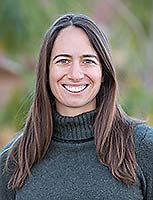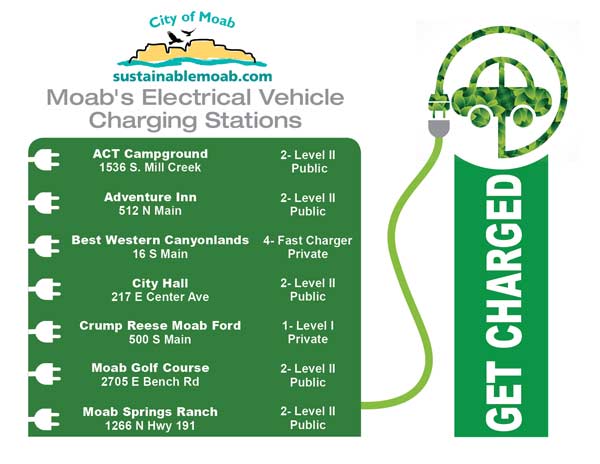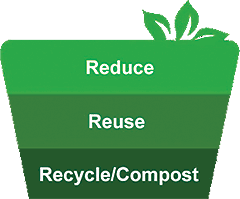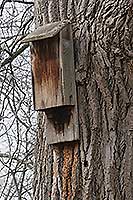SUSTAINABILITY HAPPENINGS August 2019 |
||
| USU Moab Professor Conducting Nationwide Research On Permaculture | ||
 Dr. Roslynn McCann, associate professor and sustainable communities Extension specialist at USU Moab, recently completed a six-month sabbatical on permaculture design working on a national qualitative research study. Her interviews with permaculture leaders across the country provided insight on the many ways the permaculture design is being used to regenerate our social and environmental systems, and into best practice recommendations as she considers developing a master’s degree in permaculture at USU Moab through her department of Environment and Society. Dr. Roslynn McCann, associate professor and sustainable communities Extension specialist at USU Moab, recently completed a six-month sabbatical on permaculture design working on a national qualitative research study. Her interviews with permaculture leaders across the country provided insight on the many ways the permaculture design is being used to regenerate our social and environmental systems, and into best practice recommendations as she considers developing a master’s degree in permaculture at USU Moab through her department of Environment and Society.Permaculture is an ethics-based, whole systems design framework providing information and skills to regenerate ourselves, our communities, and our environment. Prior to her sabbatical, Dr. McCann was already experimenting with permaculture design to help mitigate climate change impacts, and she has published about this work in a book entitled Addressing Climate Change at the Community Level in the United States and in an international journal. Dr. McCann sought to learn more about how different individuals, organizations, and universities were engaged in this solutions-based work across the United States.  “The number one thing that stood out to me is that many people around the country are actively using permaculture design on a range of scales from small residential landscaping projects to redesigning our entire consumptive and degenerative social structure” said Dr. McCann on her findings. “I had been feeling a weight on me, that sustainability was becoming an impossible goal until I saw the hopeful work people around the country are doing to change that paradigm.” “The number one thing that stood out to me is that many people around the country are actively using permaculture design on a range of scales from small residential landscaping projects to redesigning our entire consumptive and degenerative social structure” said Dr. McCann on her findings. “I had been feeling a weight on me, that sustainability was becoming an impossible goal until I saw the hopeful work people around the country are doing to change that paradigm.”“The experiences I had with the various groups will have an impact on my teaching and community efforts and volunteering I participate in. The sabbatical was just what I needed to evaluate the future of permaculture within the USU system, and here in Moab.” In total, Dr. McCann visited and interviewed over 20 individuals engaged in permaculture projects around the country, from locations as far reaching as Hawaii, California, and Massachusetts, allowing exploration of projects in varied climates and ecosystems. The places she visited included large academic institutions, tropical agroforestry research sites, local community groups and organizations, and institutes and individuals teaching at the community, state, national and international levels. While each of the sites focuses on the permaculture design framework, many also apply permaculture design to various other missions based on the location and the goals of those involved. Teaching, education, skills building, and empowerment were common goals for many of the sites. More specific goals included restoring diversity to areas overgrown by a single plant species, collecting and reusing rainwater, and counseling troubled youth. Dr. McCann’s experiences demonstrate the various ways permaculture is being implemented, and also the various impacts it can have in providing tangible solutions to social and environmental destruction. Throughout her journey Dr. McCann kept a blog to record and share her experiences. The blog may be viewed online at permaculture.usu.edu. Further updates and a conclusion to the blog are pending a conclusion and summary to remaining interviews. Prior to her sabbatical, Dr. McCann also started a permaculture garden on the USU Moab campus grounds. |
||
| Community Connections, Green to Gold Businesses, Health & Innovation by Dr Rosemarie Russo Sustainability Director |
||
As the summer progresses and gardens bloom, it’s a great time to reflect on how everyone in Spanish Valley, can come together to create and preserve our thriving community. Within the City’s Sustainability Action Plan and the proposed ten goals, there are several recommendations for residents and businesses to address: Mitigation and Adaptation to Drought Although we were fortunate enough to have a good water year, water conservation in an arid climate is always important. A few simple steps are to mulch areas on your property. Free mulch for residents is available at the Public Works Building at 470 Kane Creek Blvd. Mulching will save thousands of gallons of water. In September, the city will have free sink aerators, toilet tank devices and shower aerators through the Sustainability Office. Replace thirsty green lawns with butterfly gardens: yarrow, lavender, penstemon and catmint.
There are a number of new shuttle companies to get you to bike trails, restaurants and even Grand Junction airport! Check out KZMU ride board too. Purchasing wisely and buying in bulk can reduce the amount of waste generated. Remember coffee cups can be recycled now! For a list of green labels and what they mean visit the sustainablemoab.com website. If you can’t afford to buy all organic produce, concentrate buying the dirty dozen items organic: strawberries, spinach, nectarines, apples, peaches, pears, cherries, grapes, tomatoes, celery, bell peppers and potatoes. These items tend to have higher percentages of pesticide residues. If your scanning in produce the PLU starting with a 9 means it was organically grown. Currently less than 5% of produce getting imported into the country is inspected so “Buy local” – Easy Bee and the Youth Garden have a Collective Produce Stand (5:30 – 7 PM Tuesday). Sustainability Office (new bike map with shuttle listing, free aerators/dryer balls/subsidized green cones) – www.sustainablemoab.com or rrusso@moabcity.org
|
||
 |



